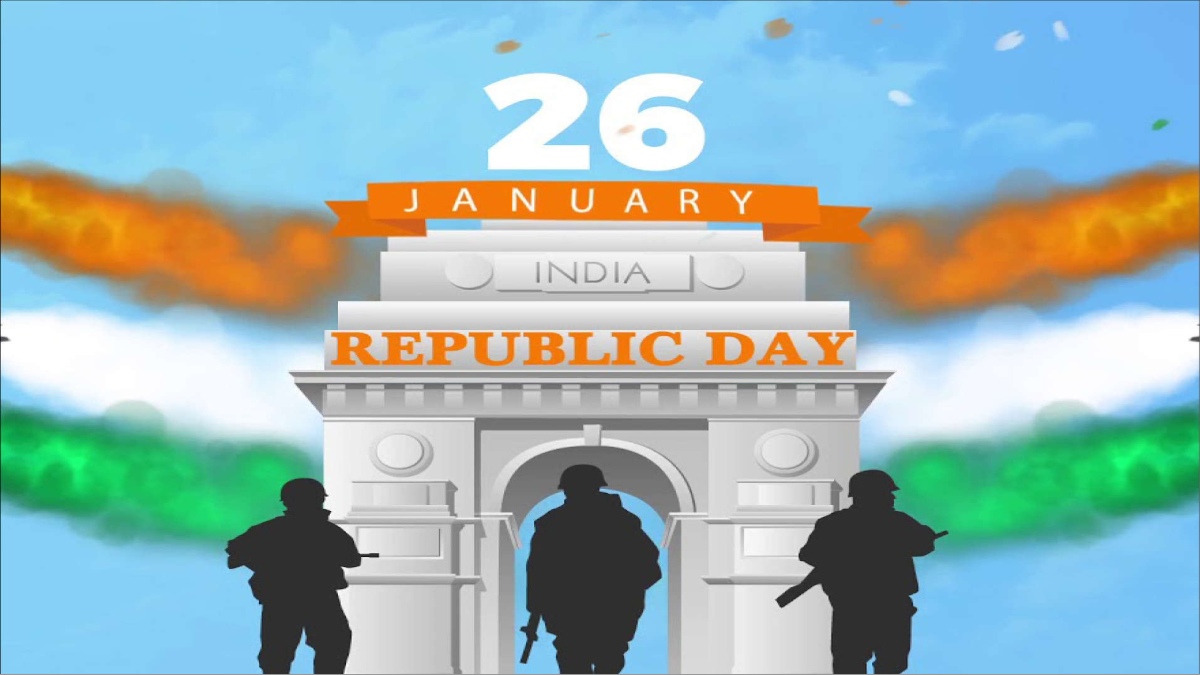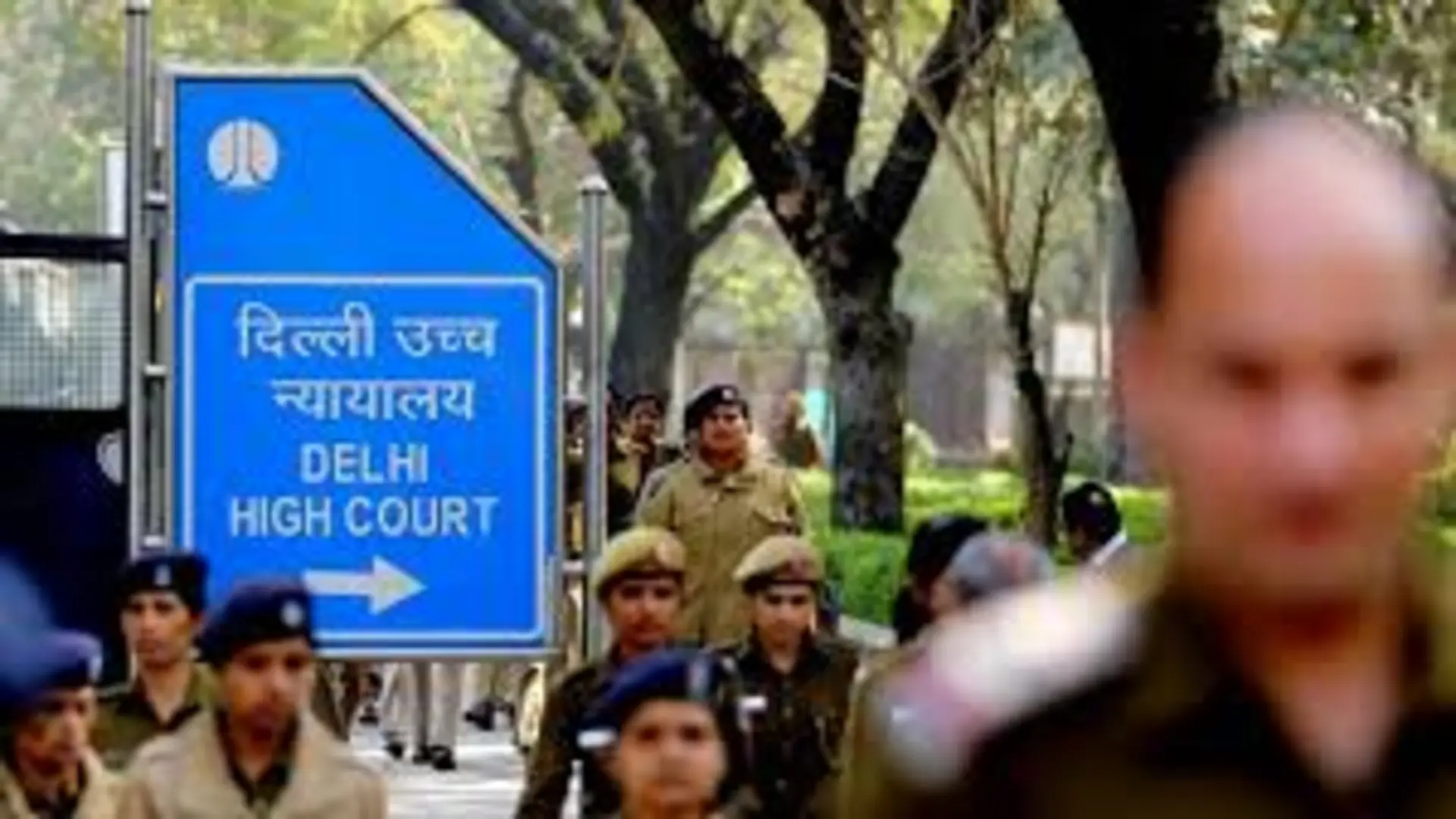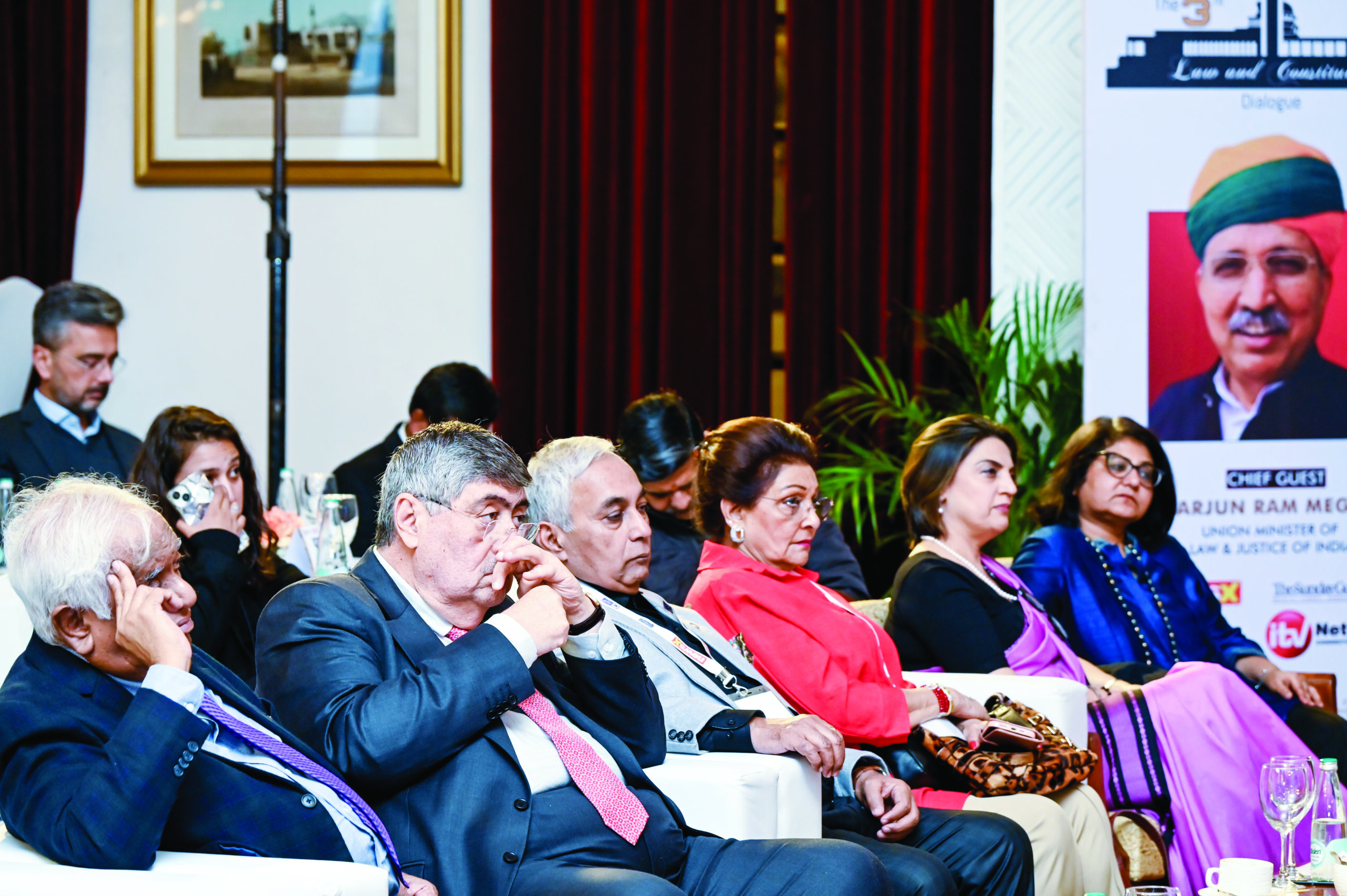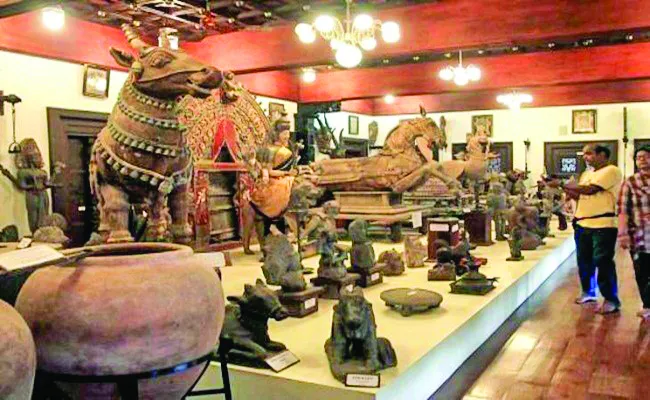“The objective of our Republic is to secure justice, liberty and equality for its citizens and to promote fraternity among the people who inhabit its extensive territories and follow different religions, speak various languages and observe their peculiar customs……Our Constitution is a democratic instrument seeking to ensure to the individual citizens the freedoms which are so invaluable. India has never prescribed or prosecuted opinion and faith and our philosophy has room as much for a devotee of a personal god, as for an agnostic or an atheist. We shall, therefore, be only implementing in practice under our Constitution what we have inherited from our traditions, namely, freedom of opinion and expression……”
– Dr. Rajendra Prasad.
26th January, 1950, was the day when India became a republic and its constitution (major part) came into force. This day is celebrated as the Republic Day as it was on this day in 1930 that Purna Swaraj was celebrated following the resolution of the Lahore Session. The Constituent Assembly took a total of two years, eleven months and seventeen days to complete the Constitution. The Constituent Assembly considered a total of 2473 amendments proposed to the Draft Constitution from 9th December, 1946 to 26th November, 1949. Dr. Rajendra Prasad, the President of the Constituent Assembly confirmed the Constitution and fifteen articles were immediately given effect to on 26th November, 1949, which were, the provisions of Citizenship, Oath and Affirmation by the President, Elections, Definitions, Interpretation, Powers of the President to Remove Difficulties and the Short Title of the Constitution. The rest of the provisions came into effect from 26th January, 1950 and the working of the Constituent Assembly came to a stop. The preamble, a part of the Constitution, also came into force on 26th January, 1950, which presents the intention of the framers of the Constitution and the principles of the nation.
FUNDAMENTAL FEATURES OF THE INDIAN CONSTITUTION
On the occasion of 72nd Republic Day, it will be apt to highlight the fundamental features of the Indian Constitution which make it a living Constitution. The fundamental features of the Constitution are briefly discussed hereinafter. Part I deals with the Union and its Territory and Part II deals with Citizenship. The Fundamental Rights are provided in Part III of the Constitution. The Fundamental Rights enshrined in Part III of the Constitution represent the basic values enriched by the people and the object of the fundamental rights is to ensure the inviolability of certain essential rights against political vicissitudes. Fundamental rights are not distinct but are mutually exclusive, as has been held by the Supreme Court in a catena of judgments. Article 14 deals with Equality before Law and states that the State shall not deny to any person equality before the law or the equal protection of the laws within the territory of India. Article 15 deals with prohibition of discrimination on grounds of religion, race, caste, sex or place of birth. Article 19 provides for protection of certain rights regarding freedom of speech and states that all citizens shall have the right to freedom of speech and expression, to assemble peaceably and without arms, to form associations or unions (cooperative societies), to move freely throughout the territory of India, to reside and settle in any part of the territory of India, and to practice any profession, or to carry on any occupation, trade or business. Article 21 provides for protection of life and personal liberty and states that no person shall be deprived of his life or personal liberty except according to procedure established by law. Article 25 provides for the freedom of conscience and free profession, practice and propagation of religion and states that subject to public order, morality and health and to the other provisions of this Part, all persons are equally entitled to freedom of conscience and the right freely to profess, practice and propagate religion. Article 30 provides for the right of minorities to establish and administer educational institutions and states that all minorities, whether based on religion or language, shall have the right to establish and administer educational institutions of their choice. Article 32 provides the remedies for enforcement of the Rights conferred under Part III and states that the right to move the Supreme Court by appropriate proceedings for the enforcement of the rights conferred by this Part is guaranteed. Dr. B.R. Ambedkar while highlighting the central importance of Article 32 of the Constitution stated that I am very glad that the majority of those who spoke on this article have realised the importance and significance of this article. If I was asked to name any particular article in this Constitution as the most important – an article without which the Constitution would be a nullity – I could not refer to any other article except this one. It is the very essence of the Constitution and the very heart of it and I am glad that the House has realised its importance.
Part-IV deals with Directive Principles of State Policy and Dr. B.R. Ambedkar called the Directive Principles of State Policy as a novel feature of the Indian Constitution. The object of directive principles is to promote the ideal of social and economic democracy and they seek to establish a welfare state in India. The Supreme Court has held that the Indian Constitution is founded on the bedrock of the balance between the Fundamental Rights and the Directive Principles. Part IV-A deals with the Fundamental Duties that every citizen of India is expected to follow and states that it shall be the duty of every citizen of India – to abide by the Constitution and respect its ideals and institutions, the National Flag and the National Anthem; to cherish and follow the noble ideals which inspired our national struggle for freedom; to uphold and protect the sovereignty, unity and integrity of India; to defend the country and render national service when called upon to do so; to promote harmony and the spirit of common brotherhood amongst all the people of India transcending religious, linguistic and regional or sectional diversities; to renounce practices derogatory to the dignity of women; to value and preserve the rich heritage of our composite culture; to protect and improve the natural environment including forests, lakes, rivers and wild life, and to have compassion for living creatures; to develop the scientific temper, humanism and the spirit of inquiry and reform; to safeguard public property and to abjure violence; to strive towards excellence in all spheres of individual and collective activity so that the nation constantly rises to higher levels of endeavour and achievement; who is a parent or guardian to provide opportunities for education to his child or, as the case may be, ward between the age of six and fourteen years.
Part V deals with the Union, which includes the Executive, the Council of Ministers, the Attorney General of India, the conduct of the Government business, the Parliament, the Legislative Powers of the President, the Union Judiciary and the Office of the Comptroller and Auditor General of India. Part VI deals with the States which includes Executive, the Council of Ministers, the Advocate General for the State, the conduct of the Government business, the State Legislature, the Legislative Powers of the Governor, the High Courts in the States and the Subordinate Courts. Part VII has been repealed by the Constitution (7th Amendment) Act, 1956. Part VIII deals with Union Territories. Part IX deals with the Panchayats. Part IX-A deals with the Municipalities. Part IX-B deals with the Cooperative Societies. Part X deals with the Scheduled and Tribal Areas. Part XI deals with the Relations between the Union and the States. Part XII deals with Finance, Property, Contract and Suits. Part XIII deals with Trade, Commerce, and Intercourse within the Territory of India. Part XIV deals with the Services under the Union and the States. Article 315 states that subject to the provisions of this article, there shall be a Public Service Commission for the Union and a Public Service Commission for each State. Part XIV-A deals with Administrative Tribunals and Tribunals for other matters. Part XV deals with Elections. Article 324 states that the superintendence, direction and control of the preparation of the electoral rolls for, and the conduct of, all elections to Parliament and to the Legislature of every State and of elections to the offices of President and Vice-President held under this Constitution shall be vested in a Commission referred to in this Constitution as the Election Commission and Article 329 states that the validity of any law relating to the delimitation of constituencies or the allotment of seats to such constituencies, made or purporting to be made under Article 327 or Article 328, shall not be called in question in any Court. Part XVI deals with special provisions relating to certain classes.
Part XVII deals with the Official Language. Part XVIII deals with Emergency Provisions. Article 352 states that if the President is satisfied that a grave emergency exists whereby the security of India or of any part of the territory thereof is threatened, whether by war or external aggression or armed rebellion, he may, by Proclamation, make a declaration to that effect in respect of the whole of India or of such part of the territory thereof as may be specified in the Proclamation. Article 356 states that if the President, on receipt of report from the Governor of the State or otherwise, is satisfied that a situation has arisen in which the government of the State cannot be carried on in accordance with the provisions of this Constitution, the President may by Proclamation assume to himself all or any of the functions of the Government of the State and all or any of the powers vested in or exercisable by the Governor or anybody or authority in the State other than the Legislature of the State; declare that the powers of the Legislature of the State shall be exercisable by or under the authority of Parliament; make such incidental and consequential provisions as appear to the President to be necessary or desirable for giving effect to the objects of the Proclamation, including provisions for suspending in whole or in part the operation of any provisions of this Constitution relating to anybody or authority in the State: Provided that nothing in this clause shall authorise the President to assume to himself any of the powers vested in or exercisable by a High Court, or to suspend in whole or in part the operation of any provision of this Constitution relating to High Courts. Part XIX contains miscellaneous articles and Part XX deals with amendment of the constitution. Part XXI deals with Temporary, Transitional and Special Provisions and Part XXII deals with Short Title, Commencement, Authoritative Text in Hindi and Repeals.
EXCERPT FROM B.R. AMBEDKAR’S SPEECH
Dr. B.R. Ambedkar, in his speech on November 25, 1949, stated that if we wish to maintain democracy not merely in form, but also in fact, what must we do? The first thing in my judgment we must do is to hold fast to constitutional methods of achieving our social and economic objectives. It means we must abandon the bloody methods of revolution. It means that we must abandon the method of civil disobedience, non-cooperation and satyagraha. When there was no way left for constitutional methods for achieving economic and social objectives, there was a great deal of justification for unconstitutional methods. But where constitutional methods are open, there can be no justification for these unconstitutional methods. These methods are nothing but the Grammar of Anarchy and the sooner they are abandoned, the better for us. The second thing we must do is to observe the caution which John Stuart Mill has given to all who are interested in the maintenance of democracy, namely, not “to lay their liberties at the feet of even a great man, or to trust him with powers which enable him to subvert their institutions”. There is nothing wrong in being grateful to great men who have rendered life-long services to the country. But there are limits to gratefulness. As has been well said by the Irish Patriot Daniel O’Connel, no man can be grateful at the cost of his honour, no woman can be grateful at the cost of her chastity and no nation can be grateful at the cost of its liberty. This caution is far more necessary in the case of India than in the case of any other country. For in India, Bhakti or what may be called the path of devotion or hero-worship, plays a part in its politics unequalled in magnitude by the part it plays in the politics of any other country in the world. Bhakti in religion may be a road to the salvation of the soul. But in politics, Bhakti or hero-worship is a sure road to degradation and to eventual dictatorship. The third thing we must do is not to be content with mere political democracy. We must make our political democracy a social democracy as well. Political democracy cannot last unless there lies at the base of it social democracy.
Justice Krishna Iyer once aptly enunciated that the Indian Constitution is the cornerstone of a liberated nation which lays the grand foundation of a great people’s political edifice of governance and spells out the fundamental rights and socialistic aspirations of the vast masses long inhibited by an imperialist ethos. It creates a trinity of democratic instrumentalities with checks and balances, parliamentary in structure, quasi-federal in character. An independent judiciary, an accountable Parliament at the Centre and like legislatures at the State level, a powerful Election Commission and fearless, critical Comptroller and Auditor General provide a paramountcy of democracy, at once responsible and responsive. Judicial review of State action, public finance auditable by a constitutional authority, obligation to seek fresh mandate through general elections with the adult franchise, accountability, direct and indirect, to the people in several ways, — these are fundamental in the governance of the country. The people, though free, have fundamental duties mandated by Article 51-A of the Constitution to exercise which, as in cases of environmental and ecological preservation, compassion for living creatures, protection of the value of composite culture, the authority of judicial writ power may be moved in aid.
As we celebrate the 72nd Republic Day, it will be apposite to remind ourselves of the objectives of the Constitution. We must draw our attention towards the basic principles of law in our society and call to mind the purpose which the law has in view to serve in a country governed by rule of law envisaged by the Constitution. Fundamental rights and fundamental duties have to be given equal importance. Fundamental duties, though non-justiciable, are rules of law. It is our duty to abide by the Constitution and carry out our fundamental duties effectively for instilling a sense of obligation and discipline amongst ourselves. We have to fulfil the objectives of the Constitution to dispense social justice to the people of our country. The Judiciary has played a magnificent role in upholding the Constitution and must always travel on the same path of delivering justice constructively. The Constitution obliges us to strive towards excellence in all spheres of individual and collective activity, so that the nation constantly rises to higher levels of endeavour and achievement. Therefore, on the 72nd Republic Day, let us pledge to uphold our living Constitution by remembering the words of Mahatma Gandhi, Father of our Nation, when he said that I shall strive for a Constitution which will release India from all thraldom and patronage, and give her, if need be, the right to sin. I shall work for an India in which the poorest shall feel that it is their country in whose making they have an effective voice; an India in which there shall be no high class and low class of people; an India in which all communities shall live in perfect harmony. There can be no room in such an India for the curse of untouchability or the curse of intoxicating drinks and drugs. Women will enjoy the same rights as men.
On the occasion of 72nd Republic Day, it will be apt to highlight the fundamental features of the Indian Constitution which make it a living Constitution. Part I deals with the Union and its Territory and Part II deals with Citizenship. The Fundamental Rights enshrined in Part III of the Constitution represent the basic values enriched by the people and the objective of these rights is to ensure the inviolability of certain essential rights against political vicissitudes.













